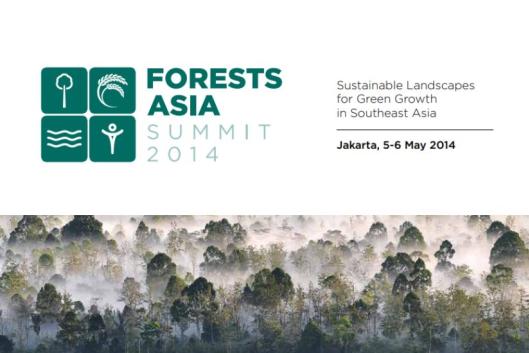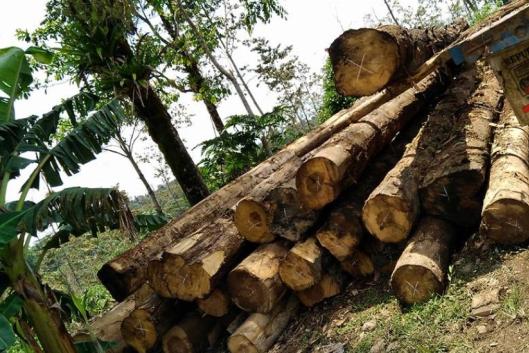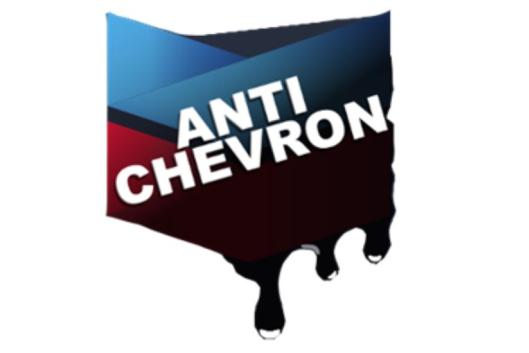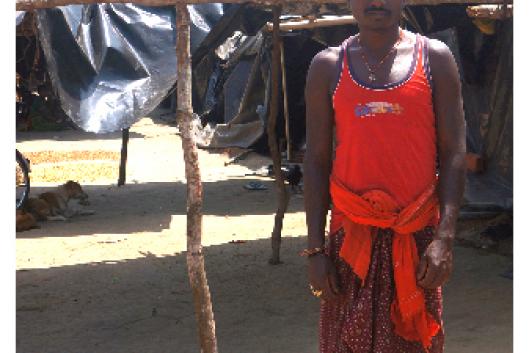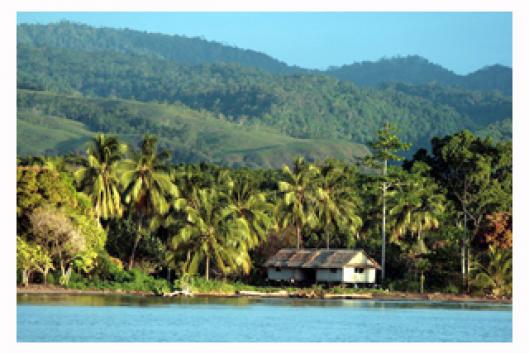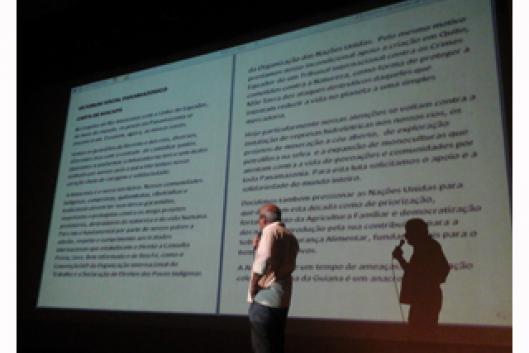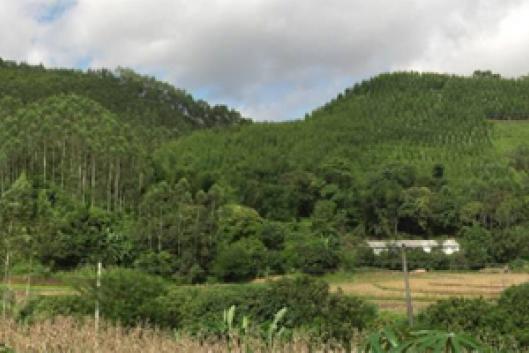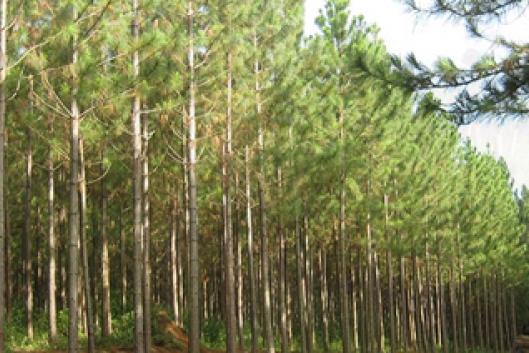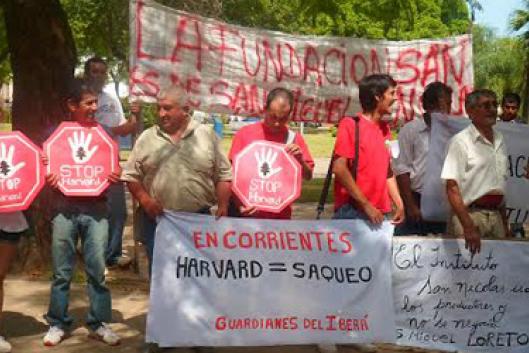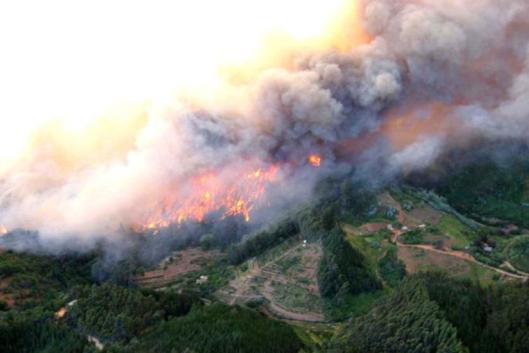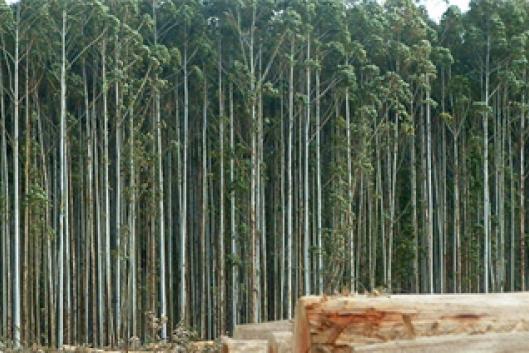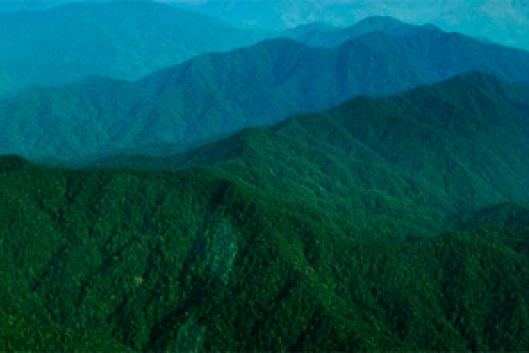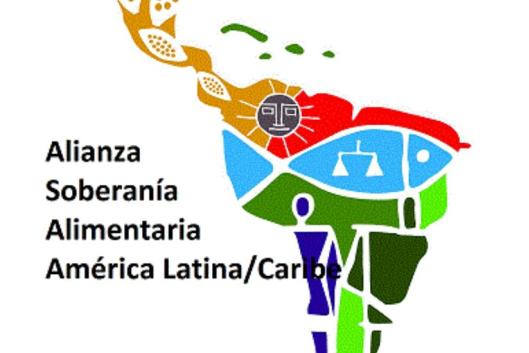Bulletin Issue 202 – May 2014
OUR VIEWPOINT
PEOPLES IN ACTION
-
10 June 2014In a context of massive land concessions in Cameroon over the last five years, apresidential decision in 2013 to grant the US based company Herakles Farms almost 20,000 ha of native land for the establishment of a large-scale oil palm plantation ignored the long local people and organizations’ opposition to the projectthat would destroy a densely forested area.The move raised a broadly supported international “call to action” in December 2013 demanding the President to cancel the decision.
-
10 June 2014A broad coalition of organisations has launched an international call to request that the parties to the Convention on Biological Diversity (CBD) and the Cartagena Protocol on Biosafety implement binding regulations to stop the spread of genetically engineered organisms into the environment. There are already documented cases of genetically engineered plants spreading uncontrolled into wild populations and ecosystems, as well as transgene presence in landraces or local varieties of crop plants such as maize in Mexico and rice in China.
-
10 June 2014To mark International Anti-Chevron Day on May 21, the Union of People Affected by Chevron‐Texaco’s Oil Operations (Ecuador); the Mapuche Confederation of Neuquén (Argentina); the Richmond Progressive Alliance and Asian Pacific Environmental Network (California, United States); Environmental Rights Action/Friends of the Earth Nigeria and Kebetkache Women Development and Resource Centre (Nigeria); and the Communities of the Vaslui Region (Romania) issued a joint statement to condemn Chevron’s abusive and irresponsible corporate practices.
-
10 June 2014With similar arguments as people in conservation areas who have been evicted for REDD, like the Sengwer case in Kenya (see http://wrm.org.uy/all-campaigns/your-support-in-needed-the-sengwer-people-in-kenya-is-being-forcibly-evicted-from-its-territory/), several indigenous communities in tiger reserves in India are facing imminent eviction from their homeland allegedly for “tiger conservation”.
-
10 June 2014The people of Collingwood Bay in Papua New Guinea have won back their land from Malaysian loggers and oil palm companies after a hard fought battle. Two leases had been originally issued in 2012 to two companies covering 38,350 hectares. Later, the Malaysian oil palm company Kuala Lumpur Kepong (KLK), a member of the Roundtable on Sustainable Palm Oil (RSPO), together with Malaysian investment company BatuKawan, acquired the rights to these leased lands via a third company: Collingwood Bay Plantations.
-
10 June 2014The Movement of People Affected by Dams (MAB) in the Madeira River region, made up by hundreds of rural and urban workers, farmers, fisherpeople and community representatives and leaders, held a People’s Assembly on April 17 in the city of Porto Velho. The participants analysed the struggles they have waged against the countless human rights violations caused by the flooding of the Madeira River and the violent imposition of hydroelectric plants in the state of Rondônia. They placed responsibility on the shareholders in the Energia Sustentável do Brasil consortium, which operates the Jirau power plant, the Santo Antônio Energia consortium, which runs the Santo Antônio power plant, and the Brazilian government.
-
9 June 2014Only available in Spanish. Entre los días 28 y 31 de mayo de 2014, en la ciudad de Macapá, Brasil, los pueblos de la región amazónica celebraron el VII Foro Social Panamazónico. Llenos de coraje y solidaridad, los participantes se comprometieron a luchar por la transformación de la Amazonia en la tierra sin males soñada por sus abuelos, como lo expresaron en la Carta de Macapá.
COMMUNITIES, MONOCULTURES AND FORESTS
-
10 June 2014Since the Laos government adopted, in 1990, the World Bank´s Tropical Forestry Action Plan, it started with support from International Financial Institutions to convert forest areas in the country to large-scale industrial tree plantations, encroaching into people’s lands, forests and livelihoods. When this process started, about 80% of the Laos people relied directly on forests for their physical and cultural survival. This figure alone is an indicator of how heavily the Laos people got affected by the expansion of tree plantations, especially in their right to use and access land and forest, as well as in their food sovereignty.
-
10 June 2014Mozambique is a country where tree plantations dates back to colonial times, when Portugal encouraged the planting of eucalyptus and pine trees. By independence there were 20,000 hectares of tree plantations of exotic species in seven provinces.
-
10 June 2014Harvard University is the owner, through the Harvard Management Company (HMC), of the world’s largest endowment, which handles 32 billion dollars annually. Of this total, around 15% is devoted to forestry investments around the world. In Argentina, Harvard owns 87,000 hectares of land in the province of Corrientes with pine and eucalyptus plantations that are managed by two companies: Empresas Verdes Argentinas S.A. (EVASA) and Las Misiones S.A.
-
-
10 June 2014In the early 1990s, as a result of the Forests Law of 1987, the area covered by tree plantations in Uruguay began to grow rapidly, with rates of expansion sometimes greater than 50,000 hectares annually.
-
10 June 2014The Ulu Masen project was developed in 2008 aiming to generate 3.3 million carbon credits a year. Ulu Masen became the first REDD project to be validated under the Climate Community and Biodiversity Standards. In 2012, Chris Lang of REDD-Monitor visited Aceh and found that the project no longer exists. This article is based on his visit and reports about Ulu Masen (http://www.redd-monitor.org/tag/ulu-masen/).
-
10 June 2014The Fourth Special Conference of Social Movements of Latin America and the Caribbean for Food Sovereignty was held on May 2 and 3, 2014, in Santiago, Chile. The conference was organized by the Alliance for the Food Sovereignty of the Peoples of Latin America and the Caribbean, an important alliance of social movements encompassing indigenous peoples, peasant farmers, rural workers, artisanal fisherpeople, women, environmentalists and NGOs.
RECOMMENDED
-
10 June 2014A case study of the "Fair Forest Carbon compensation" project of French company Pur Projet, in the region of San Martin, Peru, which aims to generate carbon credits destined, initially, for the voluntary carbon market. In Peru where the nature of land law means that peasant or indigenous communities can be stripped of their land titles to make way for a protected environmental conservation area created within the framework of public policy, “carbon offsetting” projects, such as this one, only serve to exacerbate land disputes. http://www.amisdelaterre.org/purprojet
-
10 June 2014A report by Greenpeace that reveals how the oil palm plantation being developed by the US based Herakles Farms in the southwest region of Cameroon – an area of great biodiversity surrounded by five protected areas – pose a serious threat to forests and forest dependent communities. http://www.greenpeace.org/international/en/publications/Campaign-reports/Forests-Reports/Licence-to-Launder/
